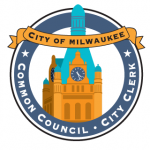Chris Abele
 ‘Chris Abele’ and ‘Argosy’ may draw blank stares from the average Joe or Jane; ask a local arts supporter, though, and you’ll get a knowing nod. Abele is the 41-year-old head of the Argosy Foundation, established by his father John, co-founder of Boston Scientific, in 1997. The foundation moved from Boston to Milwaukee, where Chris was alerady living, in 2003. Since then, he has generously given his own time and money here and nationwide, supporting the work of groups like Planned Parenthood and the Boys and Girls Club and making appearances at political functions around the world. The Argosy Foundation supports the arts, but its broader mission is to improve the human condition through better access to healthcare, education initiatives for children, environmental protection, improving public safety and more.
‘Chris Abele’ and ‘Argosy’ may draw blank stares from the average Joe or Jane; ask a local arts supporter, though, and you’ll get a knowing nod. Abele is the 41-year-old head of the Argosy Foundation, established by his father John, co-founder of Boston Scientific, in 1997. The foundation moved from Boston to Milwaukee, where Chris was alerady living, in 2003. Since then, he has generously given his own time and money here and nationwide, supporting the work of groups like Planned Parenthood and the Boys and Girls Club and making appearances at political functions around the world. The Argosy Foundation supports the arts, but its broader mission is to improve the human condition through better access to healthcare, education initiatives for children, environmental protection, improving public safety and more.
In the interest of full disclosure, Chris Abele is VITAL’s only financial investor to date, having purchased a (very) minority share of the magazine several years ago. Since then he has made himself scarce, letting us do things however we see fit. He says it’s his way of supporting something he believes in strongly – the enduring relevance of a diverse media.
How did the arts become a focus for you?
The arts have been part of my life as long as I can remember, largely because I was fortunate enough to grow up in a family who provided plenty of opportunities to experience and learn about music, theater, dance and visual art, [and] shared their passion for it. Our family has supported various arts groups for as long as I can remember. My personal involvement started with the Museum of Fine Art in Boston, but has developed into far more here in Milwaukee.
What do you hope to achieve with your contributions of money and time in the arts community?
For the groups themselves, I hope to encourage them to strive for ambitious goals; one aspect of Milwaukee that I love is a temperament of relative understatement, which can sometimes mistranslate into diminished expectations of just how much we can achieve and how high we can aim. I would love to see a greater level of pride and celebration of some of the great art that does happen here. For the city writ large, I would love to help people realize just how much we have here and foster a more collective understanding that a life without art is a life deeply diminished.
Our foundation supports arts nationally and internationally, but we are headquartered here in Milwaukee and we believe that part of good corporate citizenship is support for the local community. Personally, I think we have a better arts scene than many people outside Milwaukee imagine, and I’m very excited about how much it continues to grow.
What do you consider your greatest achievement as an arts supporter?
I’m not sure if it’s for me to declare anything in particular a “great achievement” but I feel good about how things have improved at the Symphony [Milwaukee Symphony Orchestra] over the last few years and any part I’ve played in that. I’m glad to have supported the Milwaukee Arts Partnerships and their collective use of Tessitura, as well as having supported some audience research that has been used by many local arts groups to inform their marketing.
What’s the biggest change in the arts scene you’ve observed since moving to Milwaukee?
In theater, a number of groups have disappeared and many new ones have popped up in their place, which I think is healthy. The gallery scene in the Third and Fifth Wards has really grown; the Milwaukee Art Museum has a spectacular new building and has done a number of world class shows in the past few years (thank you, Laurie Winters!). The large number of people moving downtown will, I hope, support an increased interest and support for the arts. VS





















